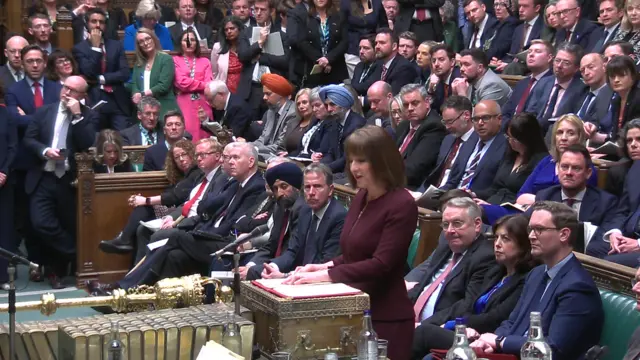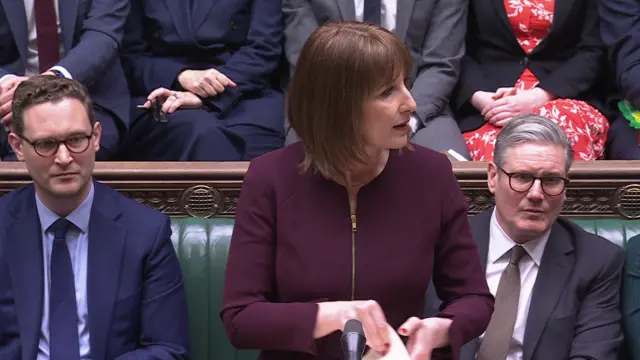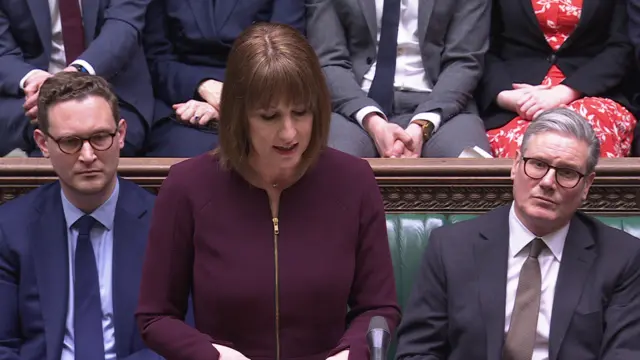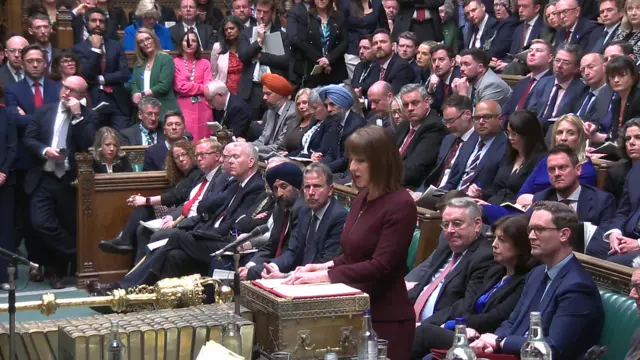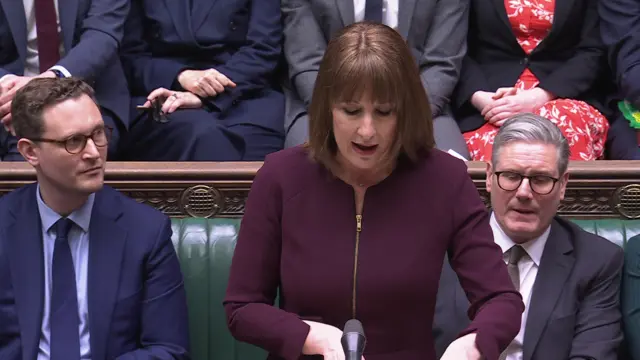Chancellor touts Labour's planning reformspublished at 13:06 GMT 26 March
Reeves says the planning system that Labour inherited was "far too slow".
She says that the OBR has assessed that Labour's planning reforms "will lead to housebuilding reaching a forty year high".
Changes to the national planning policy alone, she adds, will help build over 1.3 million homes in the UK within the next five years.
This will take Labour within "touching distance" of its promise to build 1.5 million homes in England this parliament, she says.
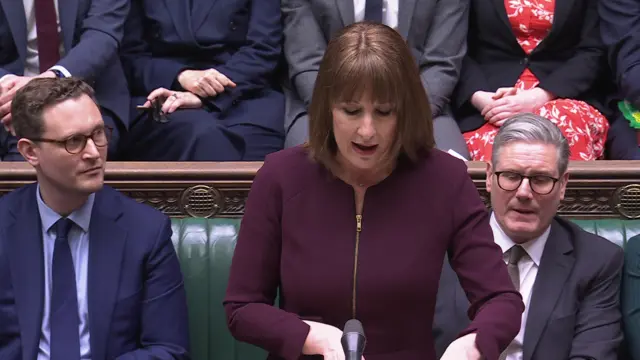 Image source, UK Parliament
Image source, UK Parliament